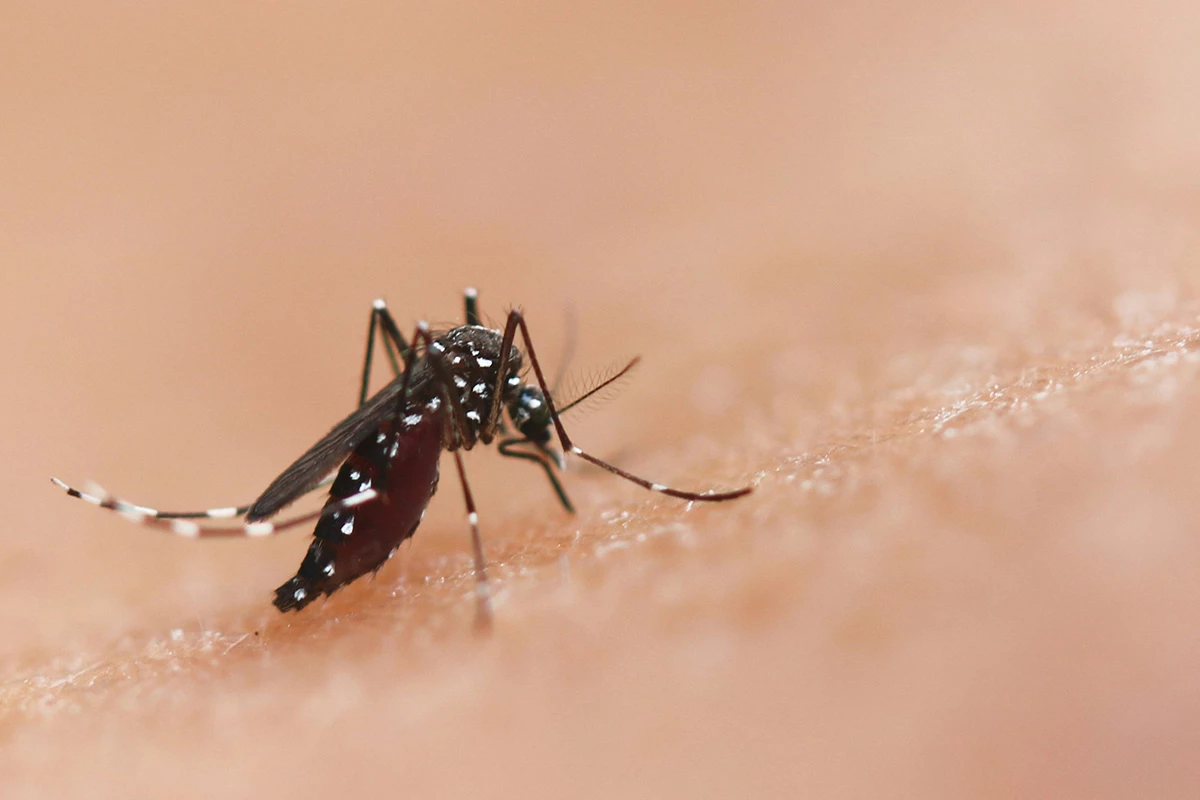Mosquitoes have long been among humanity’s most formidable adversaries, plaguing us for thousands of years and causing more deaths than any other animal. With traditional control methods facing mounting resistance, researchers are seeking innovative ways to combat mosquito-borne disease.
Now, entomologists at the University of Maryland have bioengineered a deadly fungus that spreads sexually in Anopheles (malaria-spreading) mosquitoes. The naturally occurring fungus called Metarhizium produces insect-specific neurotoxins, potent enough to kill female mosquitoes – the ones that spread disease. By dusting male mosquitoes with modified fungal spores, the team essentially created a sexually transmitted infection for mosquitoes.
For reference, this is not the first time that scientists have exploited mosquito mating habits to curb populations. Recently, researchers modified male mosquitoes to secrete toxic proteins in their semen, to kill female mosquitoes after mating.
While Metarhizium was already known to transmit through sex, natural strains resulted in very low mortality. In field trials conducted in Burkina Faso, West Africa, the newly engineered version proved far more lethal; nearly 90% of females died within two weeks of mating with infected males, compared to just a 4% mortality rate with wild-type Metarhizium. Notably, the fungal infection did not deter female mosquitoes from mating with infected males.
Despite being lethal to mosquitoes, the transgenic Metarhizium fungus is harmless in humans. Once exposed, male mosquitoes with the fungal strain can transmit spores for up to 24 hours to multiple mating partners, making the method ideal to deploy in the environment.
“What makes this fungus particularly promising is that it works with existing mosquito behavior rather than against their natural habits," says study co-author Raymond St. Leger. "Unlike pesticides or other chemical control methods that mosquitoes can develop resistance to, this method uses the mosquitoes’ own biology to deliver the control agent."
But why are such approaches necessary?
Primarily, it's due to the mosquito’s remarkable adaptability. Recently, mosquitoes and mosquito-borne parasites have developed resistance to chemical treatments and antimalarial drugs. Some mosquito populations have even adapted by avoiding bed nets and repellents, choosing instead to rest outdoors.
“It’s essentially an arms race between the mosquitoes and us," says St. Leger. "Just as they keep adapting to what we create, we have to continuously develop new and creative ways to fight them,”
The study was published in Scientific Reports.
Source: University of Maryland




